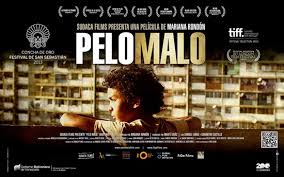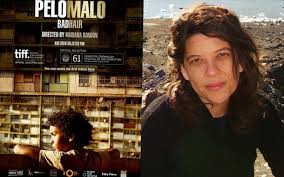the racism
The innocence contrast with the racism and homophobia in “Pelo Malo”
By Jenny Alvarez
Photo Courtesy
From the Director, screenwriter, visual artist Mariana Rondón was born in Barquisimeto, Venezuela “Pelo Malo” is one of her master piece that comes with Junior who is a nine-year-old boy who has stubbornly curly hair, or “bad hair.” He wants to have it straightened for his yearbook picture, like a fashionable pop singer with long, ironed hair. This puts him at odds with his mother Marta, a young, unemployed widow.
Junior, Marta, and his baby brother live in a large multi-family building. Overwhelmed by what it takes to survive in the chaotic city of Caracas, Marta finds it increasingly difficult to tolerate Junior’s fixation with his looks. The more Junior tries to look sharp and make his mother love him, the more she rejects him. His paternal grandmother, a witness to this rejection, asks Marta to give her the boy so that he can look after her. Marta refuses and tries to correct her son’s obsession by “setting an example,” a cruel moment which was meant to be a lesson. Junior finds himself as imaginative and resilient mind-boy and his drama is really realistic with children like him. The relationships among adults are the toughest, but is more tense and bitter movements with his mother, in part of his grandmother to the self-discovery of dancing alone – to watching him mess with his hair we see a child try to live while his mother only survives. Is something that contrast with the formidable world they are planted in. Especially when Junior sings to with his grandma a late-’60s Venezuelan rock ‘n’ roll song and as a specter you can see the real social drama that lives this boy for the complex and confusing feelings against the raw background of Venezuela.








